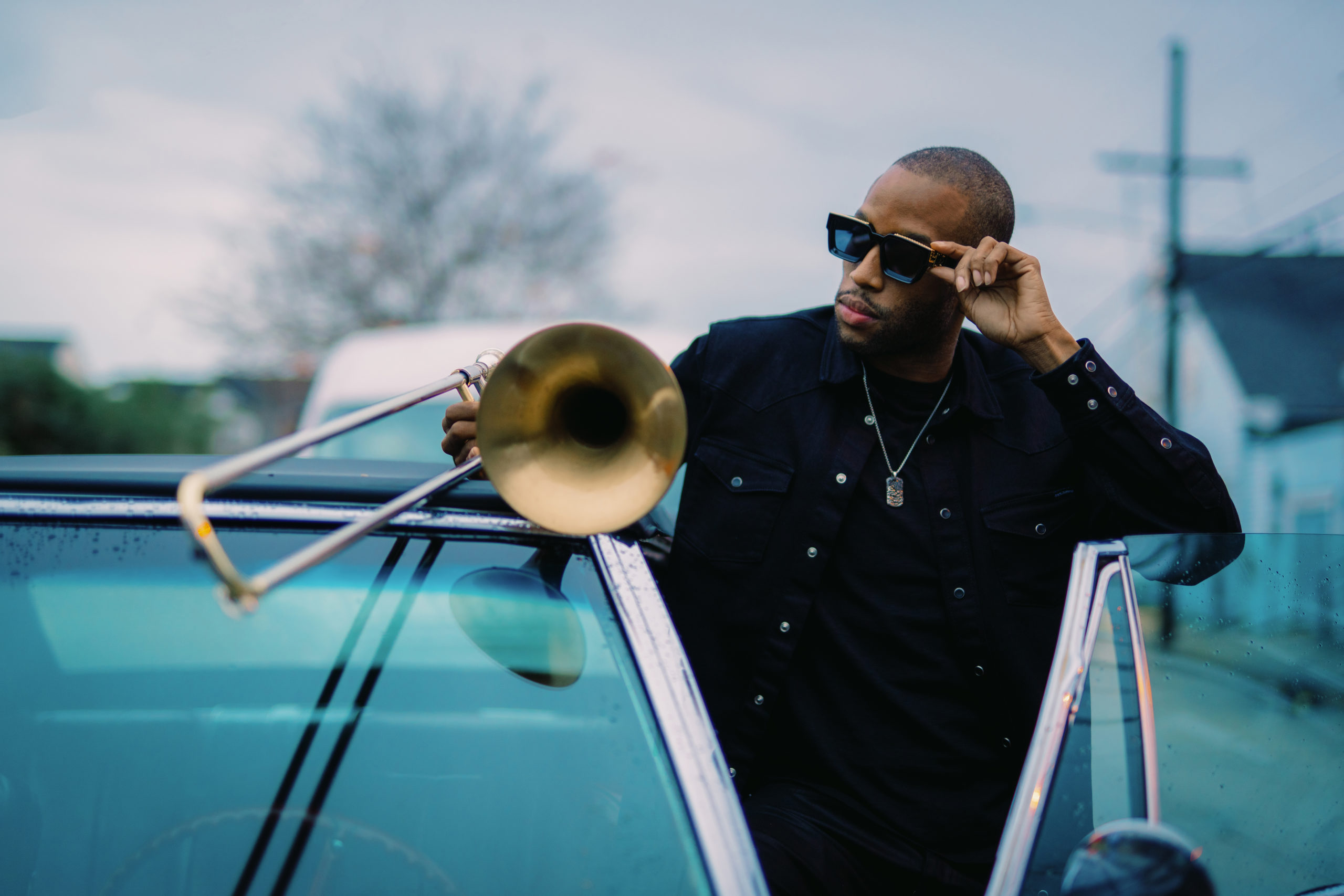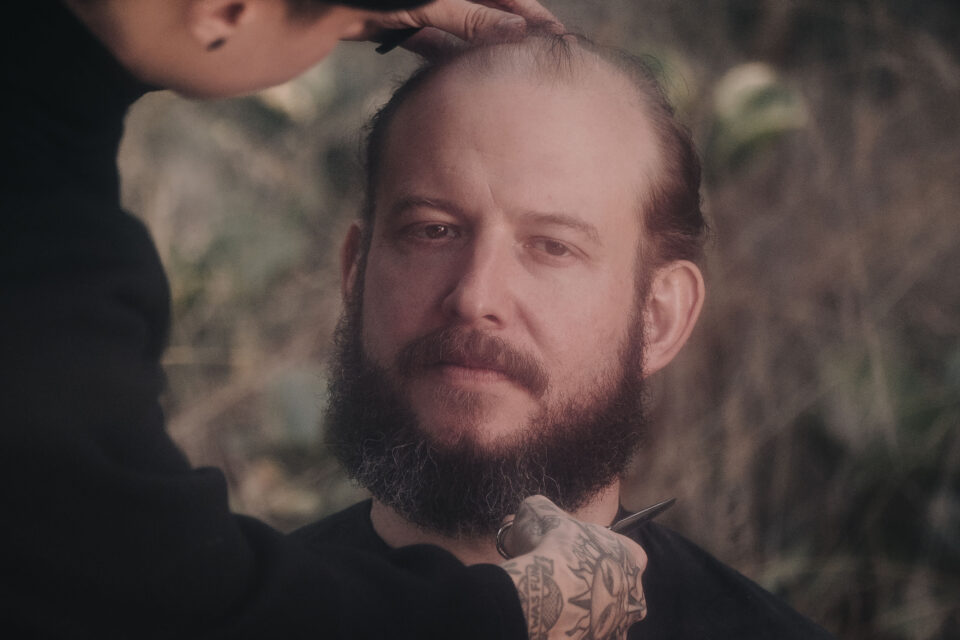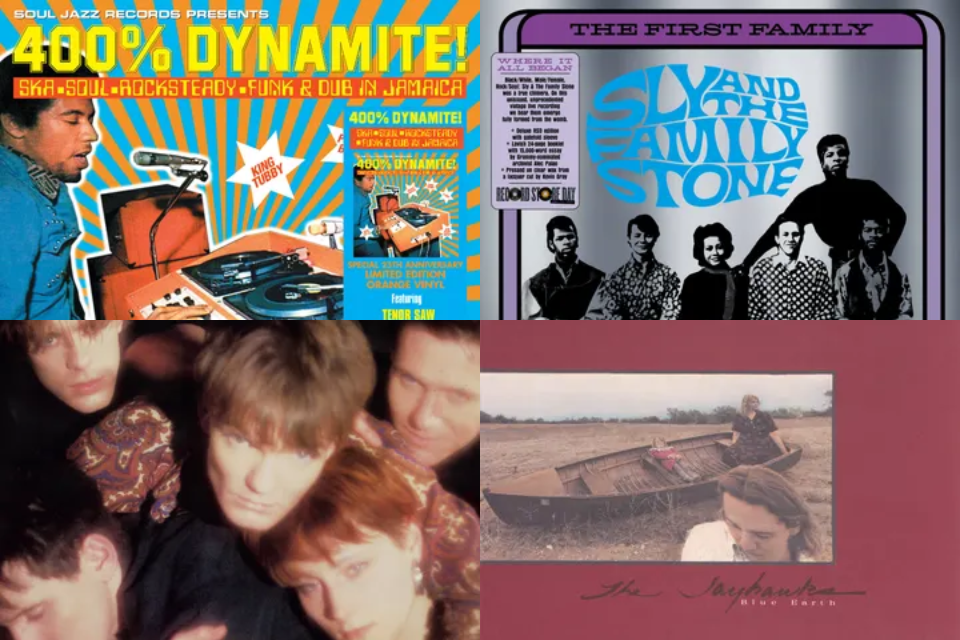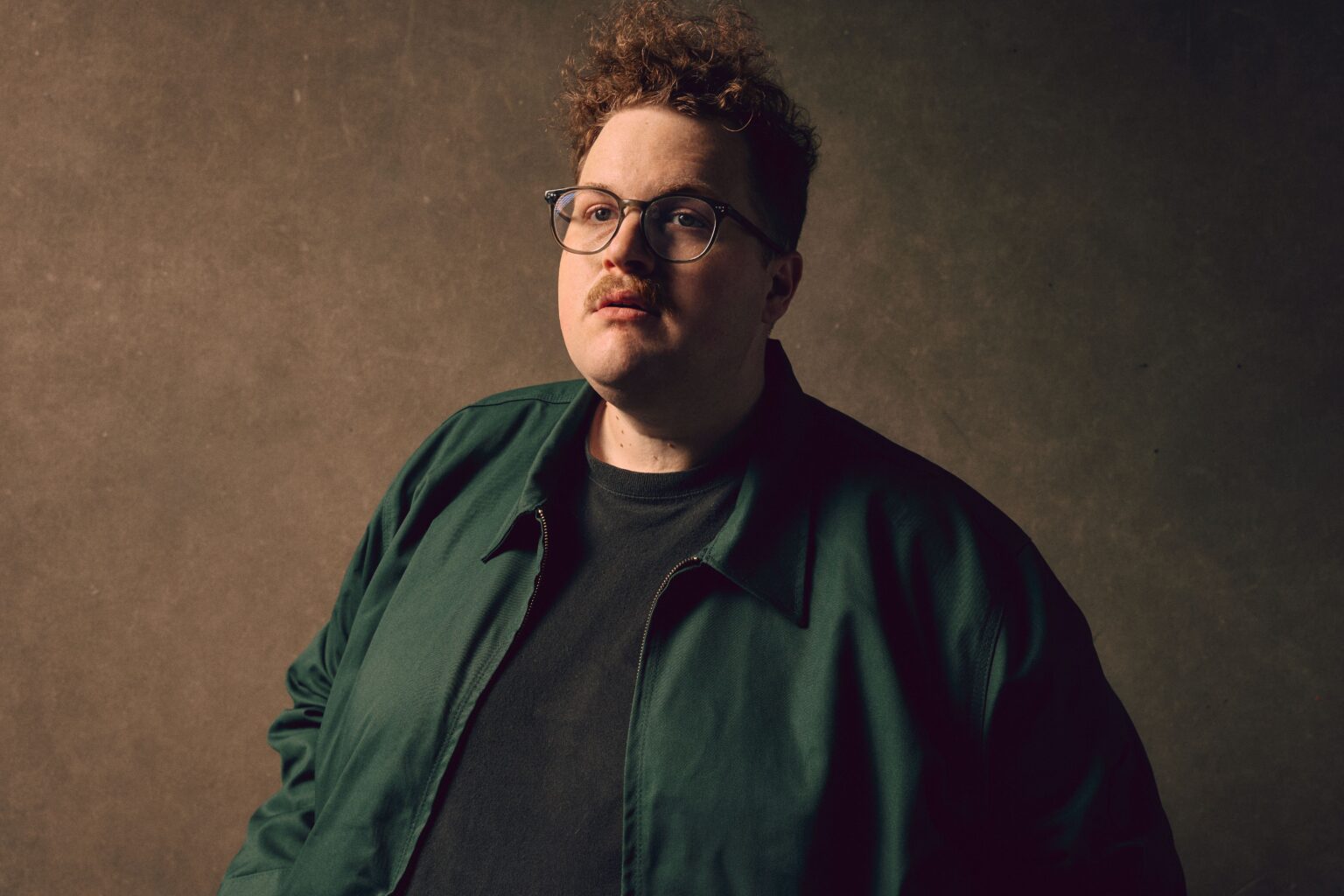On Sunday May 8th,New Orleans musician Troy “Trombone Shorty” Andrews along with his band, Orleans Avenue performed closed out the New Orleans Jazz Fest. A stage he’s performed on for many years since he was four sharing the stage with Bo Diddley and the Neville Brothers.
He’s been on tour with Lenny Kravitz, Red Hot Chili Peppers, even performed at the White House. Every time he can hit the stage with his band is special, but this time it was different.
Not only was it his return to the Jazz fest after missing years due to the pandemic. But his performance took place on Mother’s Day. the first Mother’s Day after the loss of his mother Lois Nelson Andrews. She was the inspiration for not only teaching him about the music and culture of New Orleans. But also inspired his latest project Lifted.
“It was a tough day for me and my family,” Andrews said. “We went to the gravesite, and we played with my family band before we went to the festival. So that was a lot of emotions going around. We did that early in the morning and then we went to the festival. But it was just a special day to be able to bring it in and put smiles on other mother’s faces and have them be excited about being at the Jazz Fest. So, it was an up and down day, but we played through it and let the spirit lift us up.”
The album cover features a picture of his mother lifting a two-year-old Troy Andrews as he holds a plastic saxophone. The picture was taken at a second line parade at a Jazz funeral in New Orleans. Her impact was felt throughout the city as a culture bearer. She loved everything about New Orleans from the Mardi Gras Indians to baby dolls. She also had an impact on the social aid and pleasure clubs that she created to help the community.
“She was a person that really championed that,” Andrews said. “She kept me around everything and taught other children. Even though she wasn’t a musician, she lived and breathed music and she would teach me things that she couldn’t even explain. But she had the rhythm. She loved everything New Orleans.”
The same love for New Orleans is felt in Trombone Shorty’s music. When you listen to Lifted you can hear elements of all the sounds of New Orleans from jazz, funk, street rhythms, second lines, hip-hop and bounce. It’s a New Orleans music festival compacted through ten songs as Andrews shares stories of love and loss.
His mother was able to share her love for New Orleans music and culture with the city, Trombone Shorty is trying to share that same love with the rest of the world.
“What I want them to take is no matter how hard life may be, we got to continue to move forward, accept it as it is but don’t let it break us down,” Andrews said. “Understand that we’re blessed to wake up every day and we got to make the best out of it. Coming from New Orleans, we could be singing the saddest song in the world, but we still dancing and we’re still growing.”
On the Record: A Q&A with Trombone Shorty:
MM: You grew up with a family of musician. So, I guess it’s safe to say you were born into this career path?
TS: Absolutely. I was definitely born into it. I never had a choice. Soon as I was born, there was music in the house and then I was given an instrument and I never looked back. The only chance I had to really think about what I wanted to do, if I ever wanted to do something else, was when I was a teenager and maybe I could go play basketball or football. But I never thought about that up until that point.
MM: You attended New Orleans Center of Creative Arts along with Jon Batiste, and you recently won a Grammy together. That had to be a special moment for two kids from New Orleans who grew up together?
TS: We talked about those moments for many years, about doing exactly what we’re doing if we stayed passionate about what we love to do. It’s not about money and it’s not about fame. But it was such a blessing to be able to win one with him on his project. I’m happy that he called me to contribute to it. We spent many years together. He played in my band when we were younger, before he went off to Juilliard. We played a lot of shows together. We still speak to each other. He’s a real brother of mine. I’m so proud of him and it’s a big deal that he was able to do all that this year. I’m just very excited to be able to be on that path with him and be a part of that Grammy Award-winning album.
MM: New Orleans has such a rich history of music from Louis Armstrong, the Neville Brothers, Dr. John. Even on the hip-hop side with No Limit and Cash Money, Bounce music with Big Freedia. Do you find yourself tapping into all the sounds of New Orleans in your music as well?
TS: Absolutely. I’ve worked with Mannie Fresh just a couple of weeks ago. I’ve been working with him since I was a teenager. KLC from No Limit, I’ve been putting the horns on tracks for him and Mystikal since I was a teenager. At the beginning of the pandemic, I spent a lot of time working with Juvenile. All of the subgenres of New Orleans music is definitely in my music. If you listen to the song “Lie to Me” on my album, when I take a trombone solo, there’s a bounce element underneath that solo. So, whenever I get a chance to, I’m always trying to put everything New Orleans in my music. But there is hip-hop influence, Cash Money, and No Limit
in the music. I spent a lot of time with 5th Ward Weebie, who was a bounce king here, may he rest in peace. Partners-N-Crime, I’ve been blessed to be able to work with everyone that represents different styles of New Orleans music. So, I soak everything up and put it into my music too.
MM: Speaking of that song “Lie to Me,” you also brought in musicians from your old high school, lifting the next generation of musicians.
TS: So, the drum section from my old high school, Warren Easton High, are on at the beginning. That’s some of their voices that’s singing with me, and you can hear their drum section throughout the song. They were excited to be able to have a field trip from school to come to the studio. So, I was just very excited to be able to have them on the record and contribute. It’s just a natural thing; we pass along the knowledge to the next generation.
MM: You also started the Trombone Shorty Foundation to continue to educate the musical culture of New Orleans to the next generation of musicians. So how did the foundation come together?
TS: I started with our old mayor, Mitch Landrieu. We would go around to the schools and give away trombones and trumpets to the band. From there, the foundation grew to become an academy. Every Monday evening, we would have the children, still today, come to class. The ones that show up, they’re very serious about it. They don’t get any extra grades or extra credit or nothing like that. So, they’re very serious about music. I just thought it would be a great thing to teach the kids not only music, but audio engineering and giving them a chance to learn about the music business. Because I grew up around a lot of musicians and people that knew how to play music, but they had no idea about the music business. They hear about these stories of people being exploited by record labels. They create this thing in their mind to block themselves by not knowing, by thinking that everyone is trying to cheat them. But I just wanted to give the kids a chance to understand the music business side is just as important as actually playing music. So, we give them all the tools they can have to help them grow in their professional career as a musician.
MM: Even at a young age and throughout your career, you’ve spent a lot of that time on the road. You had two years during the pandemic where you couldn’t do that. How difficult was that time for you and how does it feel being back on the road with your band again?
TS: That was a difficult time. It was the most time we’ve ever had off since high school. The longest I’ve been home since that time. But it was very weird because I couldn’t get with my band. We couldn’t get in the studio because we had to all wear a mask. We didn’t really know what the state was at that moment. It was difficult being at home. But I just switched my mind to, “This is a well-deserved rest after being on the road for so long,” and that started to help. But also, I got to give my brother Juvenile a lot of credit for helping me through that. We created so much music together, just me and him, and that put me in a different mindset creatively. But other than that, it was very difficult. But thank the Lord for being a creative and I was able to come in the studio and just do a bunch of stuff by myself. But that got boring after a couple of months, and that’s when me and Juvenile got together. It’s great being back on the road and seeing the people out there. They’re very excited that I’m on the stage and I’m excited to be there. I want to play forever, all day. So, they have to tell me that we have to get offstage. But if I could, with how excited I am to be able to play and get back on the road, I’ll play as long as I can for the people.
MM: When I listen to the album, the music does sound like a live performance. Was that the approach you took when recording this album, making sure it sounded like you’re at a Trombone Shorty show?
TS: Absolutely. I went in the studio, and I told them, “Of course, we’re going to practice and make sure the music is tight. But I wanted us to approach this album as if we were playing on stage.” We try to be as clean and as polished as we can, but on this album, I said, “Let’s just try to get that energy that we have.” Sometimes we record in the studio and once it’s done and we get ready to go on tour, we do new arrangements that fit the stage. This time we did it backwards. We just started with the live sound, and we don’t have to change much, we just add different transitions. But that’s what I wanted to capture on it and hopefully everybody can feel that.
MM: You’ve also been on the road, and you’ve been in the studio with some legendary musicians. Being a student of the game, do you take those opportunities to soak up as much game as you can to put it into your own music?
TS: Absolutely. I’ve worked with Pharrell and Bruno Mars, all types of people. Also, some of the local people. I get to work with country and rock musicians. Every situation I come in, I’m always studying I’m always watching and seeing what’s going on. I’m like a sponge. So even if I’m not thinking about it, something that I just did in the studio with someone else, it’ll naturally come out through my music and my own interpretation. So, I’m always learning and soaking up all the game that I can. Because I look at music as an entire world, different neighborhoods and different people are good at certain things. And I want to get with them to learn what they’re good at so I can put that in my arsenal.
MM: You also went on tour with Lenny Kravitz when you were just out of high school. Looking back on that time a little over a decade later, are things you learned from him still instilled in you today?
TS: Lenny Kravitz is one of my favorite people. We speak every other week. I knew that I would be a working musician, but I didn’t know how I would approach the stage. So being with Lenny Kravitz at 18, 19 years old, I was able to play in stadiums and arenas all over the world. I was already a fan of his. I was already moving into that type of music, but to have him as a teacher and as a friend was just a beautiful thing. I think the way I approach the stage is 100 percent his influence.
MM: Speaking of working with great musicians, as someone who’s a fan of Gary Clark Jr., can we talk about the guitar playing on the song “I’m Standing Here?”
TS: Gary is an incredible musician. He’s a wonderful human being. We couldn’t get together and record it because of the pandemic, but I reached out to him and sent it to him, he sent it right back to me. When I was listening to the song, his name just popped up in my mind. I’m like, “I think he would be incredible on this.” He just shredded on it and just knocked it out of the park.
I’m getting the chills just thinking about it. He’s a hell of a musician.
MM: You also got to work with the New Breed Brass Band on this album as well. So how was that?
TS: It was great. Most of them are my family members, my little cousins. I wrote that song for them first, and when I put the lyrics on it, I was like, “I’m sorry. I’ve got to use this one for my album.” But we [also] have an album together. I played in their band and wrote and produced a bunch of stuff that should be coming out soon. To be able to have my little cousins and New Breed Brass Band on this album with me and introduce them to a wider audience and give them a platform to be heard is exciting to me. They’re great musicians. They push me, I push them. There’s always a great collaborative effort.
MM: How did the idea for Shorty Gras come together?
TS: A Mardi Gras crew called Krewe of Freret, they’ve been wanting me to do some things with them for a long time. We collaborated with the guys that own Mardi Gras World. I had the idea to call it Shorty Gras, because after all the Mardi Gras parade, they do a ball. And I said, “Instead of us doing a regular ball, let’s just do the Shorty Gras. We invite everybody from Mannie Fresh, Big Freedia, Tank and the Bangas, and we just do this big New Orleans blowout at the end of it.” That’s how it came about. So, every year its always different people, but me and my band play, we ride on the float and it’s just a big fun thing.
MM: What does the remainder of 2022 look like for Trombone Shorty?
TS: Hopefully we can get through this big throwdown tour I have with a bunch of New Orleans people and we’re going to Europe soon. I just want to be able to stay healthy and continue to tour with the band. Hopefully we could get through it and get back in the studio to start working on a next album.
MM: So that five-year hiatus from your last album, did you used most of that time reflecting on where you wanted to take your music next?
TS: I didn’t realize that it was five years, because me and my band were blessed and fortunate enough to work all the time. Certain people only tour during album cycles, but we’ve been blessed to be able to play. We never stopped working up until the pandemic. But I got so much music and so many ideas that I want to do, and with the way streaming is going, we could just release songs the same night if we want to. I’m looking forward to that.
MM: Hopefully one day we can get you to come to Nashville.
TS: I’ll be back out there very soon. I want to come record out there to. Some of my friends out there, Zac Brown Band, Dierks Bentley, Little Big Town, I spent a lot of time out there working with them. So, I want to come and do an album out there in Nashville, because I think some of the greatest writers in the world are there.




